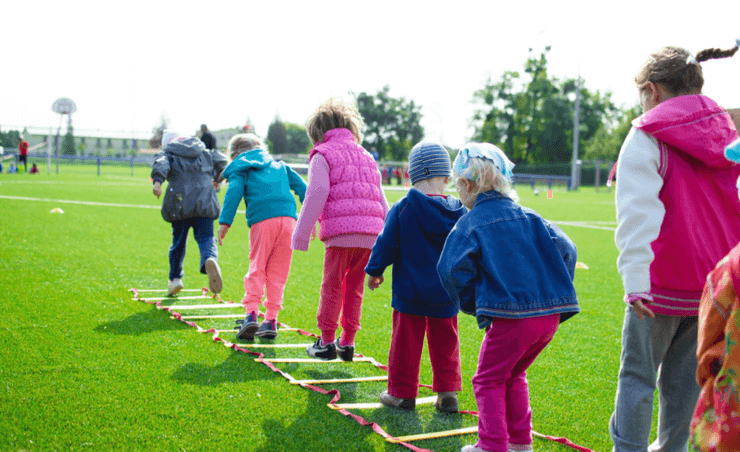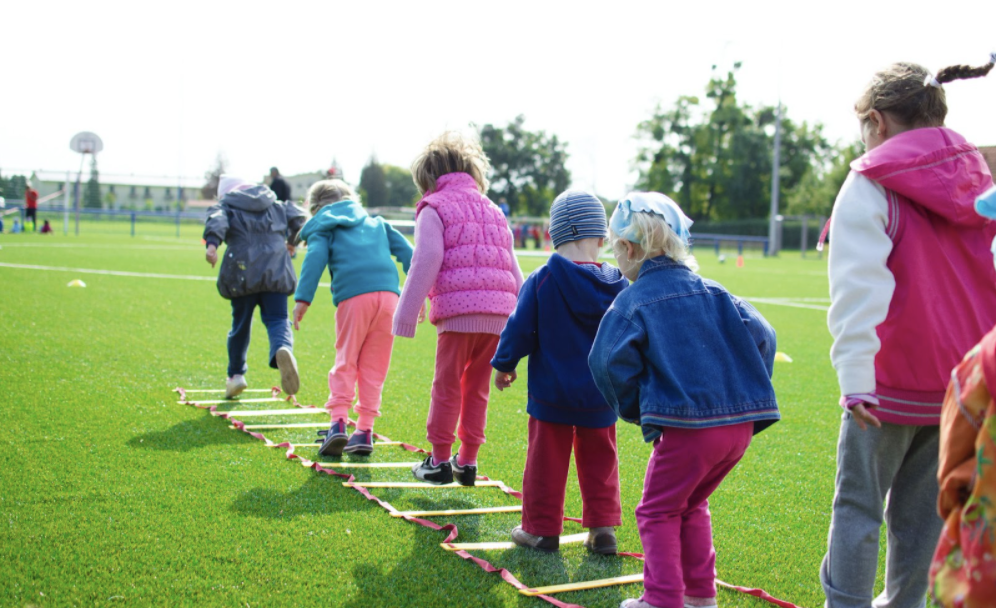
One of the principles of engineering is teamwork. Engineers work in teams to plan, design, and develop bridges, buildings, and other structures.
Children can learn these same skills by working together with others on tasks. Research shows that children feel greater success when working with others than when they’re doing tasks alone. By encouraging group participation in classroom activities, you can help your child develop skills that will serve them well in the future.
Here are the ways to teach children the importance of teamwork:
Start Teaching Them When They Are Young
Teaching young children basic skills and the importance of teamwork at a very early age sets a strong foundation and starts them off in their school years with confidence. For example, instead of reading to your child, start teaching them how to spell simple words by spelling the word out loud.
This helps with memorization, vocabulary acquisition, and expressive language skills. Set up a classroom time for students to practice what they have learned to gain mastery over it before moving on to more complex content that requires more attention from parents.
Following Instructions
As your child grows, you should make it a habit to follow instructions. For example, teach your child how to tie their shoes or put on their coat. When they are older, they will carry this habit with them throughout their lives and make it easier for others to teach them things.
Children should understand that there are consequences to not following instructions. For example, if your child doesn’t put their shoes away after they take them off, they may not be able to play with their toys. This is only fair and will help your child learn in the long run. This is also one of the building blocks necessary to teach the importance of teamwork.
If you’re training your children and need more help, consider enrolling in a kids’ Montessori program. The instructors will help teach your children how to follow instructions to learn while they play.
Play Games
Play games that involve teamwork. You can also make ‘listening’ games by asking your child to tell you what they have heard and what they think it might have been. This will allow them to develop their listening and language skills while having fun.
There are so many play games available nowadays that it’s hard to know where to start.
As well as being great fun, playground games can be a great way to develop social skills – crucial in life and work.
The concepts of teamwork, cooperation, and how everyone can contribute are all part of what makes the team tick. Not to mention the amusing aspects of some play games that are easy to learn and teach good sportsmanship – these are important elements in developing a child’s social skills.
Believe In Them
Never underestimate your child’s potential, especially when it comes to teamwork. Encourage them to play a game of baseball or other sports as you cheer them on and show appreciation for their effort. They will want to repeat what they have learned because they know how much you are rooting for them. Gratefully, you will be cheering for them as well.
Teaching strategies for teamwork are more effective if you include rewards and encouragement. Give them a sticker or a sign when they do their part in a team sport. For younger children, it may be time to explain that they have attended school because they wanted to learn in ways that their parents could not offer, such as teamwork or other important lessons. Encourage them to imagine this same experience with their friends.
Make Sure They Have Good Role Models
Let’s face it; some people just have a way with others and the importance of teamwork comes naturally. A special skill set is required to be a good team player, and it could take some time for your child to develop these skills. However, if they see you or someone else around them being a good team player, they will want to follow your lead and learn from them. If you want the best for your child, help them follow the people who are doing well in their lives by becoming great role models for them and helping them be successful individuals.
In order to be a good team player, you must have the ability to work well with others. You also must have great communication skills, as you will need to listen and communicate with people around you effectively. Trust is important and is the talent of motivating others and encouraging them when they need it most. That’s why your child needs to see good role models who possess these qualities.
Making Them Feel Smart
You have probably gone to school and heard the teacher say that they give real answers, not made-up answers. When you teach your child the importance of teamwork, make sure you provide them with the knowledge and information to teach them how to use those skills. Show them how by filling in the blanks on homework papers or solving math problems that they would be given to learning from your example.
Sit down with your child and work on their skills of teamwork. Let them know that they will learn how important it is to work well within a team in life. Teaching children the importance of teamwork is by far one of the most important things you can do. They need to know that they have to have diversity when working with others.
Conclusion
Teaching children the importance of teamwork is a great way to make them productive members of society and help them become better adults. By implementing hard work and dedication, children will develop the skills they need to succeed in many aspects of life. Get started today by implementing fun activities with your kids like sports or even simple games that could lead to new interests they may have otherwise not considered.
Andrea Gibbs is the Content Manager at SpringHive Web Agency, where she helps create content for their clients’ blogs and websites. She is currently a blog contributor at Montessori Academy, a blog dedicated to helping parents with the ins and outs of parenting children within the Montessori tradition. When she isn’t writing, she enjoys spending time with her family and her dog.
You may also enjoy 7 Simple Tips to Being a “Good Enough” Mom
